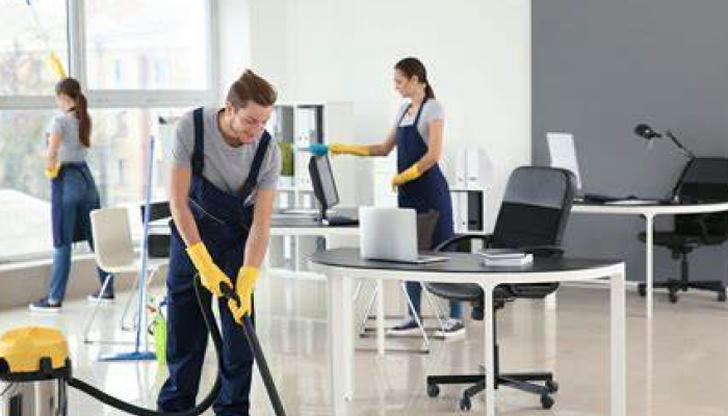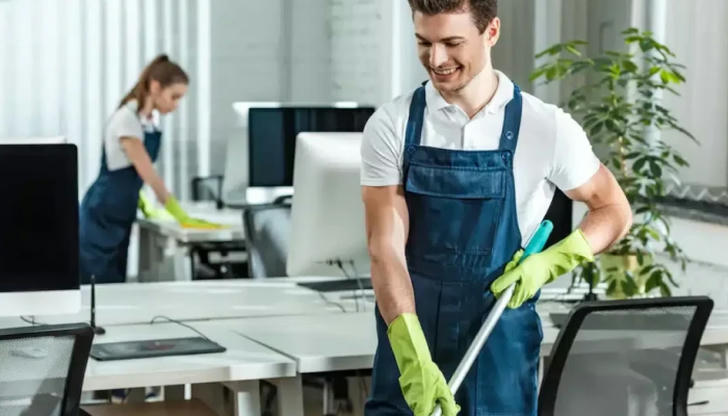A Guide to Cleaner Recruitment: Key Insights and Best Practices
Recruiting cleaners can be challenging, especially when you need to find individuals who are not only reliable and hardworking but also dedicated to maintaining high standards of cleanliness. The cleaning industry, whether residential, commercial, or specialized sectors, requires specific skills and attention to detail. In this article, we'll explore how businesses can improve their cleaning staff recruitment processes, from understanding the demand for cleaners to ensuring the right person is hired for the job.
The Demand for Cleaners

In recent years, the demand for cleaning services has surged. Factors like growing commercial spaces, a busy population, and heightened awareness about hygiene have created a constant need for cleaners across various sectors. Whether it's for cleaning offices, hospitals, schools, hotels, or homes, there's no shortage of opportunities for cleaning professionals.
The COVID-19 pandemic has also led to heightened awareness of cleanliness and sanitation, increasing the demand for qualified cleaning staff. As organizations prioritize hygiene, the need for cleaners has become more critical than ever, pushing businesses to focus on attracting and retaining reliable cleaning personnel.
Understanding the Different Types of Cleaning Roles
When recruiting cleaners, it's essential to differentiate between various types of roles. The skills, experience, and qualifications required for a domestic cleaner may differ significantly from those needed for a commercial or industrial cleaning role.
Domestic Cleaners: These cleaners work in private households, performing general cleaning duties such as dusting, vacuuming, and mopping. A domestic cleaner may be hired on a one-off or recurring basis, depending on the homeowner's needs. Reliability and trustworthiness are key traits for this role, as cleaners will often be working in private spaces.
Commercial Cleaners: These cleaners typically work in offices, retail spaces, or other commercial properties. Commercial cleaners may work after hours to avoid disrupting business activities. The tasks involved can range from routine cleaning to more specialized services such as carpet cleaning, window washing, and waste disposal.
Industrial Cleaners: These cleaners are required to maintain cleanliness in industrial settings such as factories, warehouses, and construction sites. They often handle tougher tasks that require specialized equipment, including cleaning machinery, floors, and hazardous materials.
Specialized Cleaners: In some industries, specialized cleaning roles may be necessary. Examples include medical cleaners who handle environments like hospitals and clinics, or cleaners working in food production areas where sanitation is critical.
Identifying Key Skills and Qualities for Cleaners
Before beginning the recruitment process, it’s important to define the key skills and attributes you are looking for in a cleaner. While technical skills can be taught, certain personal qualities are harder to train.
Attention to Detail: Cleaners need to be thorough and meticulous in their work. Whether it's ensuring the floors are spotless or that every surface is free of dust, attention to detail is critical.
Physical Stamina: Cleaning can be physically demanding. Cleaners need to be able to lift heavy objects, scrub surfaces, and perform repetitive tasks for extended periods.
Reliability: Cleaners must be dependable. They should show up on time and complete their tasks efficiently. This is especially important in commercial or healthcare settings where cleanliness directly impacts the environment.
Trustworthiness: In roles where cleaners work in private or sensitive environments (e.g., homes, medical facilities), trustworthiness is essential. A background check can help verify this quality.
Communication Skills: While cleaners work independently for the most part, they still need to communicate effectively with supervisors and clients. They should be able to report any issues and follow instructions clearly.
The Recruitment Process: Step by Step

To successfully recruit cleaners, it’s important to follow a structured approach. Here’s how you can streamline the recruitment process:
1. Define the Role and Requirements
Clearly define what the cleaning job entails. Specify the work hours, the tasks involved, and any specific qualifications or experience you require. Be clear on whether you need someone full-time, part-time, or on an ad-hoc basis. Also, include any specific skills or certifications, such as knowledge of using cleaning chemicals or operating specialized equipment.
2. Source Candidates
Finding the right candidates can be done through various channels:
Online Job Portals: Websites like Indeed, Glassdoor, and specialized cleaning job boards can be great places to advertise positions.
Social Media: Platforms like LinkedIn, Facebook, and even Instagram can be used to advertise roles, especially for local cleaner positions.
Recruitment Agencies: If you're looking for large-scale recruitment or specialized cleaners, agencies that specialize in cleaning roles can provide a pool of pre-screened candidates.
Word of Mouth: Referrals from existing employees or clients can also help you find trustworthy candidates. This method is often used for domestic cleaning roles.
3. Screen Resumes and Applications
Once applications start coming in, it’s time to screen resumes. Look for applicants with previous cleaning experience, even if it’s informal, such as part-time or temporary work. Pay attention to any gaps in employment and be sure to ask candidates about their work history during the interview.
A good resume should demonstrate reliability, punctuality, and strong work ethic. Look for applicants who have worked in similar environments, such as commercial or industrial cleaning, as they might require less training.
4. Interview Candidates
An interview is essential for assessing whether a candidate is a good fit for the role. Here are some questions you might ask:
"What experience do you have in cleaning?"
"How do you prioritize tasks when cleaning?"
"How would you handle a situation where you were asked to clean a difficult area?"
"Can you describe a time when you had to deal with an unhappy client?"
"Do you have experience using specialized cleaning equipment?"
Also, consider conducting a practical test to assess their skills. For example, if you're hiring a commercial cleaner, you might ask the candidate to clean a small office or section of a building as part of the interview process.
5. Check References and Backgrounds
Since cleaners often work in private or sensitive environments, performing reference checks is crucial. Reach out to former employers to confirm the candidate’s reliability, work ethic, and job performance. Additionally, conducting background checks for criminal history and prior incidents is a wise step, especially for roles in residential or healthcare settings.
6. Offer the Job
Once you've selected the best candidate, make a formal job offer. Clearly outline salary, working hours, and expectations in the offer letter. Ensure the cleaner is aware of safety guidelines, particularly when handling cleaning chemicals or working in environments like hospitals or industrial sites.
Training and Onboarding

After hiring, it's important to onboard new cleaners effectively. This might include:
Health and Safety Training: Ensure that cleaners are trained on how to use cleaning equipment safely and how to handle chemicals. This is essential in preventing accidents.
Task-Specific Training: Depending on the cleaning role, you may need to train the cleaner in specific tasks, like window cleaning or floor care.
Company Policies: Teach your new hire about your company's procedures, such as how to report issues, request time off, or handle client complaints.
A proper training program will help cleaners feel more confident in their work and increase their long-term job satisfaction.
Retaining Cleaners: Key Tips
It’s important not only to recruit cleaners but also to keep them motivated and satisfied. Here are some ways to increase retention:
Competitive Pay: Offering a fair wage and benefits is crucial. Cleaners often have a tough job, and rewarding them adequately can improve retention rates.
Recognition: Recognize a cleaner’s hard work and achievements. Simple acts like employee-of-the-month awards or public appreciation can go a long way.
Work-Life Balance: Offering flexible hours or part-time roles can help cleaners balance their work and personal lives.
Growth Opportunities: Provide opportunities for career advancement, such as promotion to supervisory roles or offering specialized training in areas like industrial cleaning or floor care.
Conclusion
Cleaner recruitment is an essential part of maintaining high standards in cleanliness, whether for commercial, industrial, or residential needs. By understanding the different roles, identifying the key skills, and following a structured recruitment process, businesses can find the right candidates who fit their needs. Retaining these employees through fair wages, recognition, and growth opportunities is just as important as recruitment itself. By focusing on both these aspects, businesses can ensure they maintain a reliable and efficient cleaning team for the long term.
